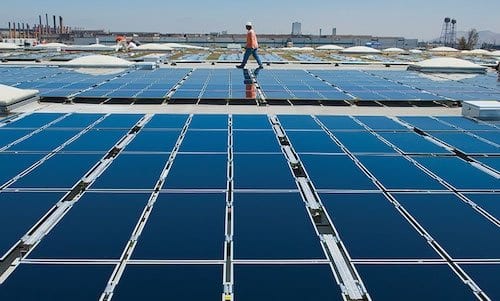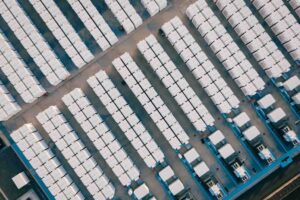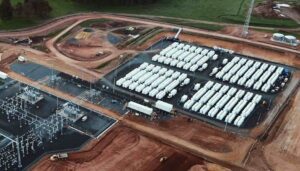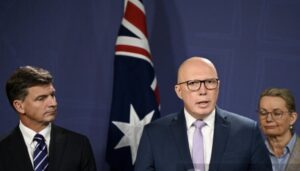Record low solar panel prices, combined with the ratcheting-down or removal of federal and state policy levers, are sparking a boom in Australia’s residential and commercial solar markets, while also prompting warnings to consumers to avoid the lure of cheap and nasty solar products – and installers.

Retailers and wholesalers in the solar PV market have reported experiencing “unprecedented demand” in the month of November, which looks set to continue into December, the first month of the Australian summer.
Solar system wholesaler, Solar Juice, said it had seen a “substantial surge in demand” in November, resulting in a “record month” in what was traditionally a period of “fairly soft” demand.
“We’re air-freighting inverters into the country from Germany at the moment to fulfill demand,” Solar Juice sales director Andrew Burgess told RE over the phone on Thursday. “That’s something we haven’t done in 5 years.
“We are already seeing (retailers) pushing really, really hard for supply,” Burgess said. People are saying that they’ve got installation crews booked out to the last day of the year.”
The spike in demand, which Burgess says is coming largely from the commercial solar sector, is being put down to a number of factors, including changes to policy mechanisms – both federally and in a number of states – and the fall in cost of PV panels.
The latter, as we have reported, is the result of a global panel glut described by Bloomberg New Energy Finance as “a new era of substantial overcapacity” that could deliver prices as low as $US0.30c/Watt.
In Australia – as we observed in August – this factor alone could provide impetus for a solar boom, particularly considering how comparatively low solar system prices are in this market already.
Added to this is the flurry of activity created by the impending end of the solar bonus scheme in NSW – closely followed by Victoria – which is expected to see many households expand their existing (and long-since paid off) solar systems, and perhaps adding battery storage.
Another policy lever that is being ratcheted down is the national STC multiplier rebate. That is, from January 31 2017, the deeming period will be dropped from 15 years to 14 years; and will drop another year, every year for the next 15 years.
According to Nigel Morris, from solar retailer Roof Juice, the cost impact of this wind-back will be negligible, and almost certainly cancelled out by further declines in panel prices.
Nonetheless, he told RenewEconomy, there are companies out there using the rebate wind-down as a “scare tactic” to convince people to invest now. And a lot of these companies, Morris warns, will be pedalling poor quality and “dumb” solar.
“Of the around 500MW or so of solar PV moved through the retail market so far this year, somewhere between six to 10 companies supply around 50-60 per cent of it,” he told RE. Of that number, he adds, “the majority is absolute crap, dumb solar, cheap solar.”
This, “unequivocally has an impact on the broader industry,” says Morris, because it is these guys who these guys set the price expectations for the entire market.
“There is nowhere on the planet where you can get solar as cheap as you can in Australia,” he said. Ultimately, consumers are “confounded and utterly confused … (and) don’t know who to believe. They’re nervous about paying double – typically that’s the price gap (between top tier and bottom tier solar), at least double – so that’s a big leap of faith.”
Burgess, meanwhile, is a little more upbeat about the state of the retail market. Sure, there are “some ratbags out there, and we’re not going to get rid of them,” he concedes.
“There are probably guys out there spruiking that the it’s the end of the world on solar rebates… there’s always going to be guys that are going to chase price. Door knockers, using whatever means to try and get a sale.
“But my gut instinct is that the industry is getting better, not worse,” he said. Layers of regulations and accreditations – both voluntary and mandatory – are being added; the inverter market is being cleaned up, and the end consumer is getting more savvy, in terms of product and quality.
“A lot of people I speak to who have installed solar say ‘we got a shit inverter put on, we’re not going to do that again’.”
Burgess says the solar inverter market, like the panel market, has a wide-ranging quality spectrum. But a “bunch of new measures” administered buy the CEC has insured inverters comply with Australian standards if they are to be approved for STCs.
“That came in place on October 9 and caught a number of manufacturers off guard,” Burgess said.
Indeed, some of the requirements for the Australian solar industry are not applicable in any other market in the world, Burgess says.
On this point, Morris agrees: “It’s worth highlighting that in terms of installer accreditation and retail programs as well, the Australian market offers more assurances around quality – installation and retailing of solar – than pretty much anywhere in the world,” he told RE.
The only loophole – and it’s a rather big one – is that most of it is voluntary.
“When you look at it there’s about 40 CEC-approved retailers Australia-wide,” Morris says, “and about 3000 solar companies Australia-wide. Why wouldn’t the other 2,960 do it?”
Interestingly, and perhaps in an effort to mop up that “other 2,960”, Australia’s top two solar industry bodies – the Clean Energy Council and the Australian Solar Council – both released new programs on Thursday to educate the public on quality solar installers.
The ASC announced the launch of a “public facing education campaign, encouraging families to choose a quality installer,” alongside a new training program for installers.
“To qualify as an Australian Solar Council Master Installer, installers must pass an intensive training program, commit to ongoing professional development, and be subject to a random audit and inspection program with real teeth, that will remove installers not living up to our high standards,” the ASC release said.
The CEC, meanwhile, launched a new campaign “advising people buying solar panels to look for an Approved Solar Retailer to make sure they get the best possible quality and service – and avoid getting a bad deal.”










